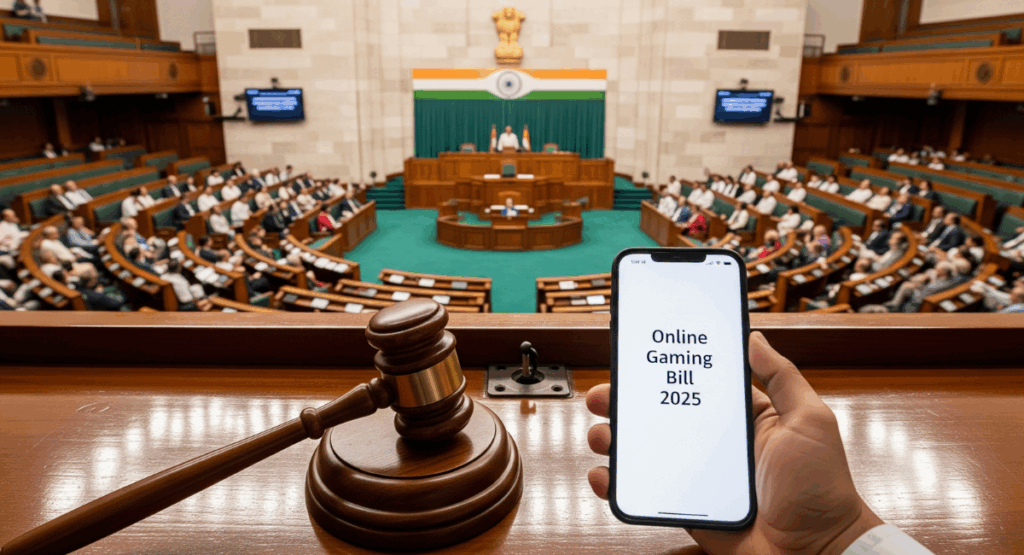
The Online Gaming Bill 2025 has truly transformed the landscape of online gaming in India. The government banned real-money games, including fantasy sports, and introduced strict rules to regulate the industry. As a result, both companies and players must now adjust to a new system.
Government Bans Real-Money Gaming
The law bans all online games involving money. It applies to both skill-based and chance-based games. In addition, the law bans advertisements and financial transactions related to such games. Therefore, fantasy sports platforms like Dream11 and MPL can no longer operate cash contests.
Central Authority Regulates Gaming
The bill also creates a national authority for online gaming. This authority will register games, categorize them, and monitor violations. It will also advise the government on new policies. Earlier, different states followed different rules, which caused confusion. Now, one central body will ensure uniform regulation across India.
Government Imposes Strict Penalties
The law introduces harsh punishments for anyone who violates the rules. If a company is caught offering banned games, it could end up facing a hefty penalty of up to three years in prison and a fine of ₹1 crore. Even advertisers who promote banned games may face two years in jail and heavy fines. Consequently, companies and advertisers will think twice before taking risks.
Fantasy Sports Platforms Stop Cash Games
Fantasy sports companies have suspended their real-money operations. Platforms such as Dream11, MPL, PokerBaazi, and Zupee now allow users to withdraw wallet balances. However, they do not permit new deposits. Players feel disappointed, since fantasy sports have become an exciting part of cricket and football seasons.
Bill Encourages Safe Gaming Models
The government is also backing e-sports and social gaming. Companies can now focus on free-to-play models, subscriptions, and reward-based systems. These formats do not involve real money, so they align with the new law. However, whether these alternatives will keep players equally engaged remains uncertain.
Industry Faces Job and Investment Challenges
The ban has shaken the gaming industry. Fantasy sports platforms created thousands of jobs, from developers to marketers. With the ban, many employees now fear losing work. Moreover, global investors had already invested billions in Indian gaming startups. Because of this new law, investors may now step back, which could hurt India’s digital economy.
E-Sports Gains Stronger Recognition
On the positive side, the law gives e-sports a major boost. Competitive gaming events already attract global attention. Now, India can build training centers, organize tournaments, and provide better opportunities for young players. As a result, e-sports may emerge as a professional career path in the country.
Critics Raise Concerns
However, critics question the complete ban on fantasy sports. They argue that players may shift to illegal and unsafe apps, which could increase risks. Experts believe the government could have regulated fantasy sports instead of banning them outright. Strong rules on transparency and safety might have protected players while allowing the industry to grow.
Industry Must Adapt to New Reality
Going forward, gaming companies must adapt to this new environment. They need to find innovative ways to engage users without cash rewards. Meanwhile, the government will continue to focus on regulation, safety, and responsible play. Over time, this shift may lead to a healthier gaming culture in India.
Conclusion
In conclusion, the Online Gaming Bill 2025 has shut down real-money fantasy sports but has opened doors for e-sports and social gaming. The future of the industry now depends on how quickly companies innovate and how well players adjust to this change.

